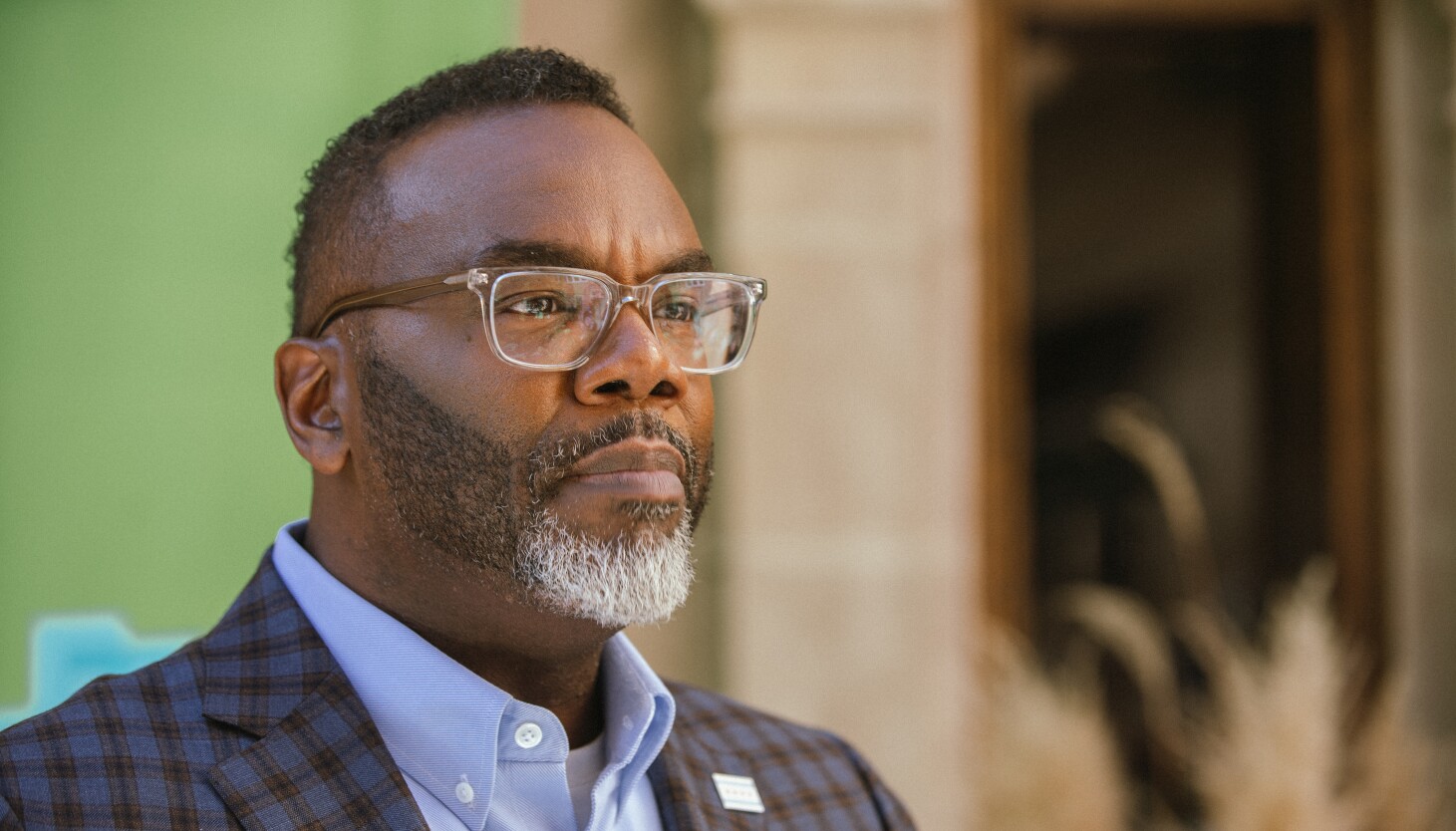Copyright Chicago Sun-Times

Mayor Brandon Johnson may want to find a $31 million budget fallback for his proposed tax on big social media companies. One constitutional expert predicted it’ll end up “a complete loser” when it’s inevitably challenged in court by opponents in the big tech industry. But Johnson’s office contends it’s a legal “amusement tax” that they’d be slapping on Meta, TikTok and other sites that many experts say can harm the mental health of young people. The mayor last week proposed taxing social media companies to help close a $1.15 billion shortfall, dinging at a rate of 50 cents per user after the first 100,000 users, similar to tax structures that have been floated — but not approved — in Minnesota and Washington state. Senior mayoral adviser Jason Lee struggled to explain how City Hall would keep track of the number of users above 100,000 without requiring social media companies to share data with the city that they may not be willing to share. “These are publicly traded companies. They already share data on users with the public on a quarterly basis and an annual basis. So, even if we had to go solely off of publicly available data, we could still use that and extrapolate that,” Lee said. Three city departments — Law, Finance and Business Affairs and Consumer Protection — are “working on potential models for collection” and enforcement of the tax, Lee said. Johnson has argued that social media companies that have been allowed to “collect our data and sell it for profit” have implemented “more and more aggressive strategies” and algorithms to get people “addicted” to social media and use it for prolonged periods every day. The mayor said it has caused “depression, and anxiety and mental illness” among young people in particular, which is why it should be treated “just like” nicotine, tobacco and other “addictive vices.” That’s why he’s promising to isolate the $31 million in revenue from the social media tax in a so-called “protecting care fund” that would be used to expand the number of “care teams” that replace police officers in responding to mental health emergencies. The money could also be used to expand the hours of the handful of mental health clinics that Johnson has reopened or, perhaps, to open a third city-run mental health clinic shuttered by former Mayor Rahm Emanuel. Big constitutional questions Social media companies raking in billions of dollars in revenue are certain to mount a legal challenge to block a Chicago tax that could be a trend-setter. Industry opponents say Johnson’s proposed tax would get passed onto small businesses. “This short-sighted tax proposal would ultimately hurt Chicago consumers and small businesses,” said Amy Bos, vice president of government affairs for NetChoice, a trade group representing dozens of tech giants including Meta, Reddit and X. “The costs will be paid by local businesses advertising on these platforms and everyday Chicagoans using these services to connect, communicate and conduct business.” Bos said the mayor’s proposal is “also unlawful,” citing a 1983 U.S. Supreme Court decision that blocked a Minnesota state tax on newspapers for paper and ink purchases beyond a $100,000 yearly threshold. Former Justice Sandra Day O’Connor wrote for the court that the tax “singled out the press for special treatment” without justification. “The parallels in this proposed tax to this case raise significant constitutional concerns,” Bos said. Martin Redish, a professor of constitutional law at Northwestern University’s Pritzker School of Law, agreed, saying he would be “shocked” if Johnson’s social media tax survived a court challenge. “You just can’t pick out the media to impose a burden that you haven’t imposed on other businesses,” Redish said. “You could tax the media as part of a generally-imposed tax. But once you start picking out the media, it’s inherently suspect.” Redish noted that “everything on the internet is, in one sense or another, covered by the First Amendment” that protects freedom of speech. “The Supreme Court has said you can’t put a special burden on First Amendment-covered activities or participants that you don’t impose more generally,” he said. “Picking out First Amendment-protected media is a way for constitutional suicide. You just don’t do that sort of thing.” Redish said the “first case anybody is going to think of” is an infamous 1936 Supreme Court ruling that blocked Louisiana Sen. Huey Long from imposing a tax on major newspapers in his state that refused to support him. “I can’t believe the people in the corporation counsel couldn’t advise him better than this. This is a complete loser,” Redish said. City Corporation Counsel Mary Richardson-Lowry said “we think it’s an amusement tax. And that’s what we’re going to stand on for purposes of pursuing that particular tax category.” “The category is social media. And the tax category is the amusement tax. We stand by that,” she said. Minnesota state Sen. Grant Hauschild, who co-authored the legislation pending in that state that’s largely mirrored by Johnson’s proposal, called it “a modern-day mining tax” like those imposed on companies that extract minerals from the earth. “If you’re going to mine our personal data, you should have to pay for that and contribute to our communities,” Hauschild said. “Taxing them for using that data for profitability doesn’t seem like a violation against the free press to me.” The mental health threat argument Bos claimed Johnson’s proposal “perpetuates a false narrative that social media is solely responsible for youth mental health challenges, when research shows these issues are far more complex and multifaceted.” “Scapegoating tech companies does nothing to address the actual underlying factors affecting young people’s well-being,” she said. But experts have increasingly sounded the alarm on social media’s potential threat to young people. Last year, former U.S. Surgeon General Vivek Murthy proposed warning labels for social media sites like those on packs of cigarettes, citing studies that found nearly half of kids aged 13-17 said social media made them feel worse about their body image, with two-thirds saying it exposed them to hate-based content. “At this time, we do not yet have enough evidence to determine if social media is sufficiently safe for children and adolescents,” Murthy’s federal advisory warned. “There is broad agreement among the scientific community that social media has the potential to both benefit and harm children and adolescents.” Massachusetts Institute of Technology professors Daron Acemoglu and Simon Johnson have called for “sin taxes” on digital advertising revenue for companies like Meta and TikTok that “seek to prey on young minds” with addictive content, they wrote last year in Network Law Review. “We are locked into a bad equilibrium, just as we were when 45 percent of adult Americans were addicted to smoking,” Acemoglu and Johnson wrote, suggesting hefty federal taxes to incentivize finding business models “that are not based on keeping people addicted and sustaining intense emotional responses.” Lee argued that social media companies with “trillion-dollar valuations” have a financial “incentive” as well as a moral obligation to come to the table. “Just like tobacco, just like liquor, just like gaming, they say, `We’re willing to be taxed because we know there are residual harms [from] our business in exchange for the ability to keep operating and keep making the profits that we make,’“ he said. “Instead of fighting this tooth and nail, [they should say], `Maybe we should make a deal here because it’s going to save us in the long run, as more and more people start to question the utility” of their products. “We’re prepared to defend this tax,” Lee said. “We think it could be a groundbreaking intervention that reverberates around the country.”



